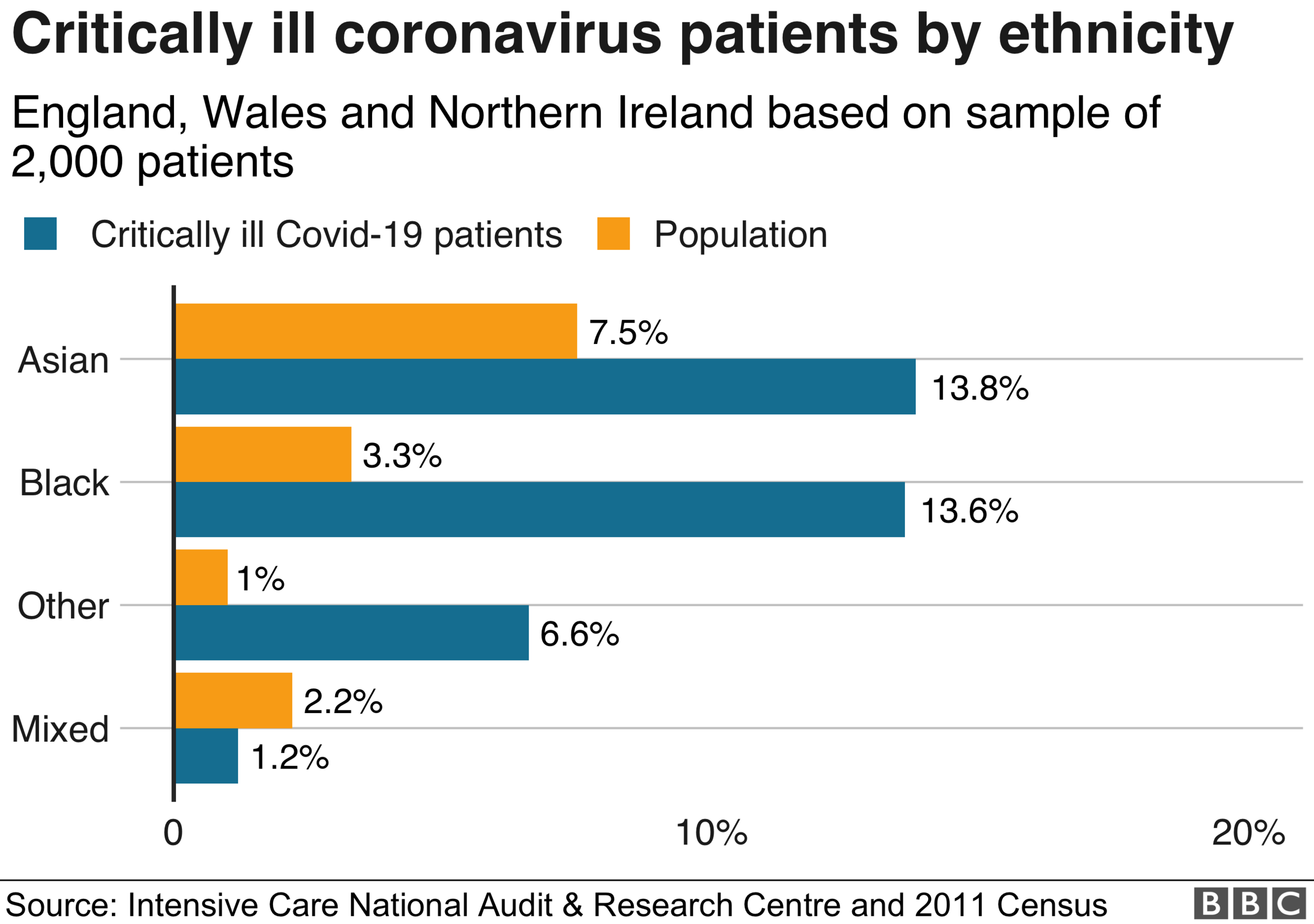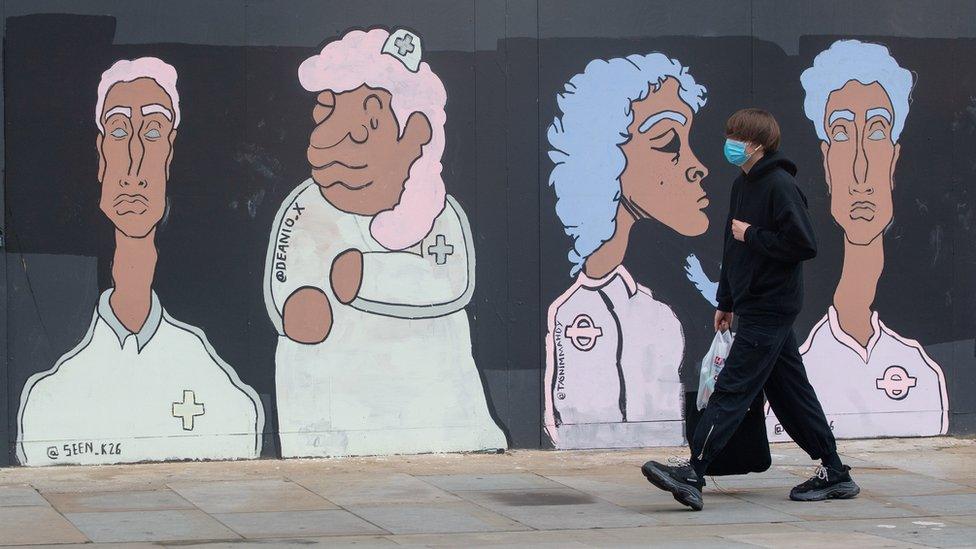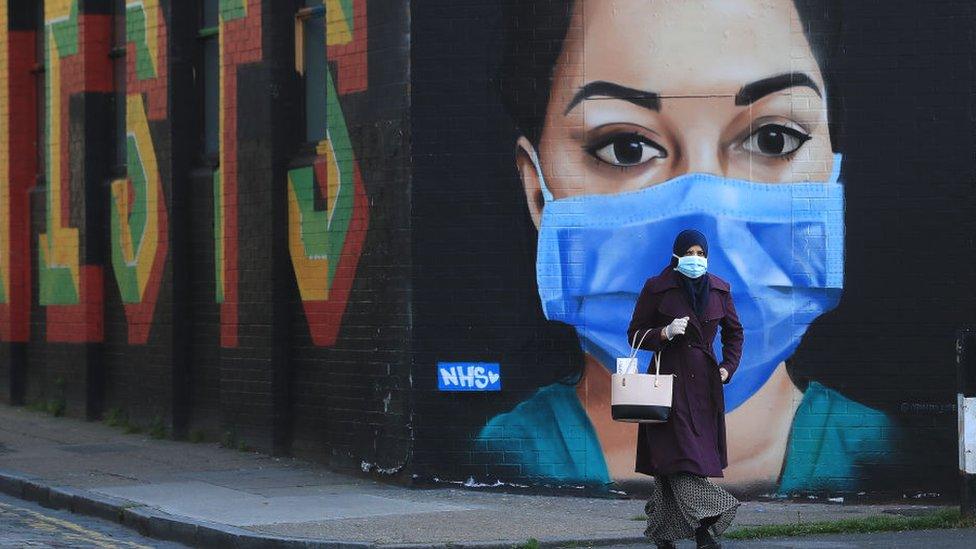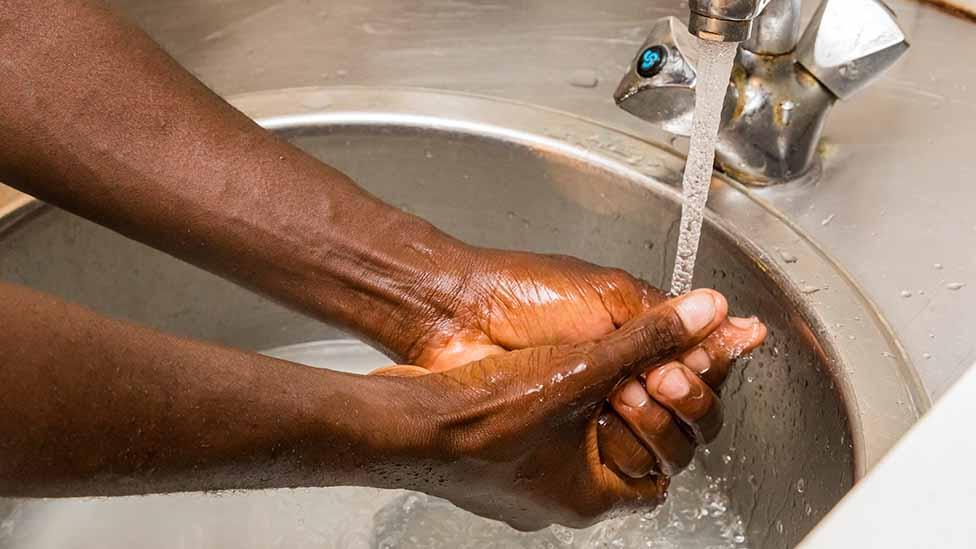Coronavirus: 'Lack of action on race equality' shown by pandemic
- Published

A "lack of action on race equality" has been highlighted by the impact of Covid-19 on Wales' black, Asian and minority ethnic communities, a report claims.
BAME people are nearly twice as likely to die with coronavirus as white people in Wales and England, according to statistics.
Now a report says systemic racism may have contributed to increased risks., external
Author Prof Emmanuel Ogbonna said many issues had been raised before.
"Many of the issues we've highlighted have been identified and discussed previously, but they haven't been addressed in any systematic and sustained way," he added.
First Minister Mark Drakeford said the report was "sobering and powerful", speaking to "people's lived experienced of racism, a persisting culture of racial discrimination and structural inequalities in Wales".
He said it showed the pandemic "has further exposed existing racial inequalities in Wales".
The report, by a Welsh Government advisory group into the impact of Covid-19 on BAME communities, also highlights factors such as housing overcrowding and issues with access to healthcare.



In April, following the UK government's announcement of a review into the impact of Covid-19 on BAME people, the British Association of Physicians of Indian Origin (BAPIO) said the Welsh Government should conduct a specific Welsh investigation.
Asked about the idea at the time, the first minister said it was not a Welsh-only issue, but a UK-wide one and he was keen to work with other parts of the country to get "better and more rapid" answers.
But the Welsh Government did set up its own BAME Covid-19 expert advisory group under the co-chairmanship of Judge Ray Singh and Dr Heather Payne.
A sub-group of the advisory group looking at the "ongoing risk assessment in relation to front-line healthcare workers" has developed an online risk-assessment tool, external.
The advisory group's report, to be published Monday afternoon, makes more than 30 recommendations to the Welsh Government to address the socio-economic and environmental risks it highlights.
It lists key risk factors, including:
Cultural issues relating to the suitability of health and social services for BAME communities
Income and employment insecurity
Housing overcrowding and environment
The financial burden created by migration status
The role of structural and systemic racism and disadvantage
Prof Ogbonna, a lecturer at Cardiff University and one of the report's authors, said: "There's an overall theme running through our research for this report.
"It centres on long-standing racism and disadvantage and the lack of BAME representation within decision-making processes.
"The coronavirus pandemic is, in some respects, revealing the consequences of a lack of action on race equality."
'More to do'
Mr Drakeford said there "certainly is more to do" in addressing tackling discrimination and disadvantage for BAME people in Wales.
At the daily Welsh Government press conference the first minister said his government will work with the education watchdog Estyn to ensure a review of Welsh history teaching takes full account of "Welsh, and wider BAME history, identity and culture".
Mr Drakeford said a helpline was being set up to provide guidance and support for BAME communities in response to the pandemic.
He added the Welsh Government was already working with health and social care employers and trades unions on covid risk assessments for BAME employees and he hoped to roll this out to other workplaces and sectors in Wales.
These risk assessments should be seen as "an investment in people and not a burden", he said.

40,000 DEATHS: Could they have been prevented?
TESTING: Who can get a test and how?
LOOK-UP TOOL: How many cases in your area?
EUROPE LOCKDOWN: How is it being lifted?
TWO METRES: Could less than 2m work?
THE R NUMBER: What it means and why it matters

- Published14 June 2020

- Published13 June 2020

- Published19 June 2020

- Published28 May 2024

- Published20 April 2020
